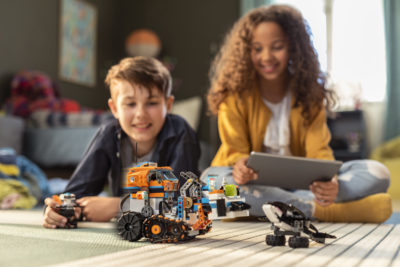Growing up in a world that is dominated by digital technologies and an abundance of stimuli, hands-on play is becoming increasingly important in children’s physical, cognitive and emotional development.
Children are naturally wired with a desire to play, that’s why parents and caregivers need to dedicate intentional time to playing with children in a way that will build them into smarter, happier and well-rounded individuals.
Kristian Imhof, Country Manager for The LEGO® Group in South Africa, says that playing helps children develop the right mix of academic and life skills such as creativity, problem solving, communication and confidence; the skills they need to thrive in the future.

By simply having the freedom to play are not just having fun, but learning new skills and making huge strides in their physical, cognitive and emotional development. This lays the foundation for the careers they will one day choose, the types of interests they will develop, and the kind of adults they will grow up to be.
Here are a few ways playtime can help with your child’s development:
- As digital technology advances, so has the landscape of play as we know it, making it a far more dynamic and overlapping experience that brings the real world, imaginary play and digital experiences together as one. Children today are more inclined toward digital play, while the current generation of parents still prefer physical activity like sport and ‘rough and tumble’ play. Interestingly, children still want their parents and caregivers to play with them – even if it is digital-based play like streaming a TV show or playing a game app on a tablet.
- Play is incredibly important in a child’s development and journey of learning, and playing together as a family is just as crucial for building stronger family ties. In the first 18 months of life, children start to build fine motor skills, learn how to communicate with others and start to formulate basic emotional responses. If you observe a child engaged in play experiences playing with LEGO® DUPLO® bricks, you’ll likely notice patterns of repetition – this is how a child learns new ways to approach a task, experimenting with what works best to achieve the desired result, while developing their hand-eye co-ordination in the process.
- Experts in child education and development around the world acknowledge the need for children to learn skills that prepare them for the ever-changing and increasingly complex future world of work. Play has the power to teach us valuable lessons, to turn a child’s imagination into a fulfilling career, and to unite families by creating opportunities to learn, laugh and grow together.


